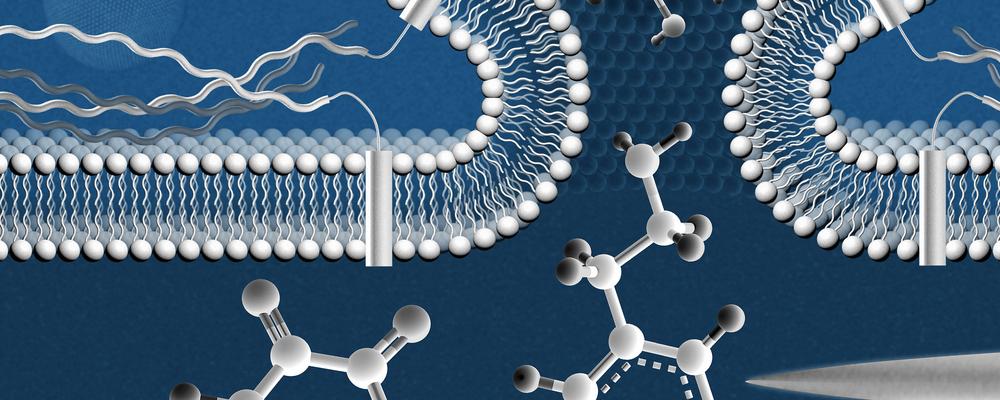
Analytical, Inorganic and Physical Chemistry
Research in analytical, inorganic and physical chemistry focuses on issues related to health, environment, materials, and energy. Our researchers have world recognised expertise in fundamental and applied chemistry.
Research highlights
- Chemistry of nanoparticles and their interactions as well as their effect on the environment
- Computational modelling of atomic and molecular interactions ranging from pharmaceuticals to interstellar particles
- Development of new analytical approaches for single cell and sub-cellular measurement of neurotransmitters using electrochemistry
- Electrocatalysis and electrochemical reaction mechanisms
- Grouted silicas, cements and corrosion
- Methods for quantum dynamics of chemical reactions
- Methods to characterise and control macromolecular and nano-chemistry with application to cellular reprogramming
- Pioneering approaches for imaging mass spectrometry in cancer and neurodegenerative disease.
Advanced equipment
In our research, we use highly advanced analytical equipment, such as the only NanoSIMS in Scandinavia, one of only 7 Ionoptika J105 SIMS instrument worldwide and a STED super resolution optical microscope. We also have access to computational facilities. More information: Go:IMS (https://www.go-ims.gu.se/).
National and international collaborations
Our research groups have strong interdisciplinary collaborations within academia, with pharmaceutical and chemical process industries as well as with instrumentation industries, both locally and internationally. We collaborate with biological and clinical researchers in the areas of neurodegenerative disease, cancer, and diabetes, as well as with physics and chemistry researchers with a focus on materials and theory.
Publications and research grants
Our researchers have many publications in high impact journals, including Nature Reviews Chemistry, Angewandte Chemie, Proceedings of the National Academy of Sciences, Journal of the American Chemical Society, ACS Nano, Nano Letters, Analytical Chemistry, Journal of Physical Chemistry, Journal of Chemical Physics.
Our research groups are highly international and several researchers have been awarded prestigious research grants and awards from, among others, the European Research Council.
Zareen Abbas, Senior Lecturer in Inorganic Chemistry
Synthesis of nanoparticles, determination of surface charge and potential to create an environmental friendly grout, durable cementitious material, new sensors, functional materials for odour control and to evaluate their toxicity.

Elisabet Ahlberg, Professor Emerita of Inorganic Chemistry
Electrocatalysis and electrochemical reaction mechanisms for the development of efficient fuel cells and batteries. Experimental and theoretical studies combined for basic understanding of industrial processes.
Johan Bergenholtz, Professor
Experimental and theoretical studies of colloidal interactions and their effect on phase behavior, structure, and dynamics, including protein interactions, dynamics of cluster fluids, colloidal mobilization and stability.
Andrew Ewing, Professor of Analytical Chemistry
Small-volume and novel approaches to electrochemically image single cells, electrochemical strategies to measure exocytotic release and the contents of nanometer vesicles in cells, chemical imaging in neurochemistry.

John Fletcher, Professor of Analytical Chemistry
Development and application of new technology and methodology for chemical imaging of single cells and tissue using mass spectrometry to understand biological processes including disease progression.
More information about John Fletcher
Gunnar Nyman, Professor of Physical Chemistry
Modelling of interstellar ices and radiative association, theoretical treatment of a new type of spontelectric material, development of quantum dynamical methods for treating chemical reactions and spectroscopy.
Thi Ngoc Nhu Phan, Associate Senior Lecturer in Analytical Neurobiochemistry
Super-resolution imaging (STED, NanoSIMS, ToF-SIMS) for understanding molecular structure and function in neuronal stem cells and brain. Development of labelling probes for correlative imaging.
Our research in analytical, inorganic and physical chemistry contributes to sustainable development in many different ways. Among others, we work with
Good health and well-being
- Brain - New theories about how neurons communicate with relevance to learning, memory, and neurodegeneration.
- Health care - New chemical imaging for studying breast and skin cancer.
Clean water and sanitation
New mechanisms for water filtration in cases where access to pure water is limited.
Sustainable cities and communities
New environmentally friendly grouting material based on silica nanoparticles for large-scale projects.
Affordable and clean energy
- Energy efficiency of industrial processes through basic studies of electrolytes and reaction mechanisms.
- Energy storage - Studies of new water-soluble organic molecules for water-based flow batteries.
- Understanding the degradation of cement used for nuclear waste storage.
-2022_3.jpg?media_id=65585&width=1264&height=211)
